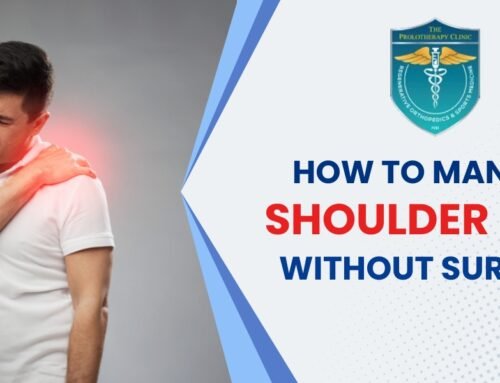Many people experience shoulder pain, but it can be particularly troublesome when it worsens at night. Understanding the reasons behind this phenomenon is crucial for finding relief and improving sleep quality.
Understanding Shoulder Pain
Shoulder pain can stem from various causes, including overuse, injury, or underlying medical conditions. It can range from mild discomfort to severe agony, impacting daily activities and sleep patterns.
Reasons Why Shoulder Pain Worsens at Night
Reduced Distractions
During the day, distractions such as work or physical activity may help alleviate shoulder discomfort. However, at night, when the body is at rest, individuals may become more aware of their pain, making it feel more intense.
Poor Sleeping Posture
Sleeping in awkward positions can put additional pressure on the shoulders, leading to increased pain and stiffness. People often unconsciously shift positions during sleep, exacerbating the problem without realizing it.
Increased Inflammation
Inflammation tends to peak at night due to the body’s natural healing processes. This heightened inflammation can intensify shoulder pain, especially if there’s an underlying injury or condition.
Muscular Tension and Stress
Stress and tension accumulated throughout the day can manifest physically, causing muscle tightness and discomfort. These issues may become more pronounced at night, contributing to worsened shoulder pain.
Medical Conditions Associated with Night Time Shoulder Pain
Rotator Cuff Injuries
Rotator cuff injuries, such as tears or strains, are common causes of shoulder pain. The pain from these injuries may intensify at night, particularly when lying on the affected shoulder.
Frozen Shoulder
Frozen shoulder, or adhesive capsulitis, is characterized by stiffness and pain in the shoulder joint. People with this condition often experience increased discomfort at night, making it difficult to find a comfortable sleeping position.
Bursitis
Bursitis occurs when the fluid-filled sacs (bursae) that cushion the shoulder joints become inflamed. This inflammation can lead to nighttime shoulder pain, especially when lying on the affected side.
Tips for Alleviating Night Time Shoulder Pain
Improving Sleeping Posture
Maintaining a proper sleeping posture can help reduce shoulder pain. Sleeping on the back or unaffected side with adequate support pillows can alleviate pressure on the shoulders.
Using Supportive Pillows
Specialized pillows designed to support the neck and shoulders can promote better alignment and reduce discomfort. Additionally, placing a pillow under the arm can help keep the shoulders in a more neutral position.
Applying Heat or Cold Therapy
Applying heat or cold packs to the affected shoulder before bedtime can help soothe pain and inflammation. Experimenting with both methods can help determine which provides the most relief.
Performing Gentle Stretching Exercises
Engaging in gentle stretching exercises before bed can help loosen tight muscles and improve flexibility. However, it’s essential to avoid overexertion, as this can exacerbate existing shoulder issues.
When to Seek Medical Help
While occasional shoulder pain may resolve on its own with rest and home care, persistent or severe pain warrants medical attention. Additionally, seek prompt medical help if shoulder pain is accompanied by limited range of motion, swelling, or signs of infection. For effective shoulder pain treatment in Pune, consider visiting The Prolotherapy Clinic led by Dr. Vikram Rajguru.
FAQs
Why does my shoulder hurt worse at night?
Nighttime shoulder pain can worsen due to reduced distractions, poor sleeping posture, increased inflammation, and muscular tension.
Is nighttime shoulder pain a sign of a serious condition?
While it can be caused by common issues like muscle strain, it can also indicate more serious conditions such as rotator cuff injuries or bursitis. Persistent or severe pain should be evaluated by a healthcare professional.
How can I relieve nighttime shoulder pain without medication?
Improving sleeping posture, using supportive pillows, applying heat or cold therapy, and performing gentle stretching exercises can help alleviate nighttime shoulder pain without medication.




